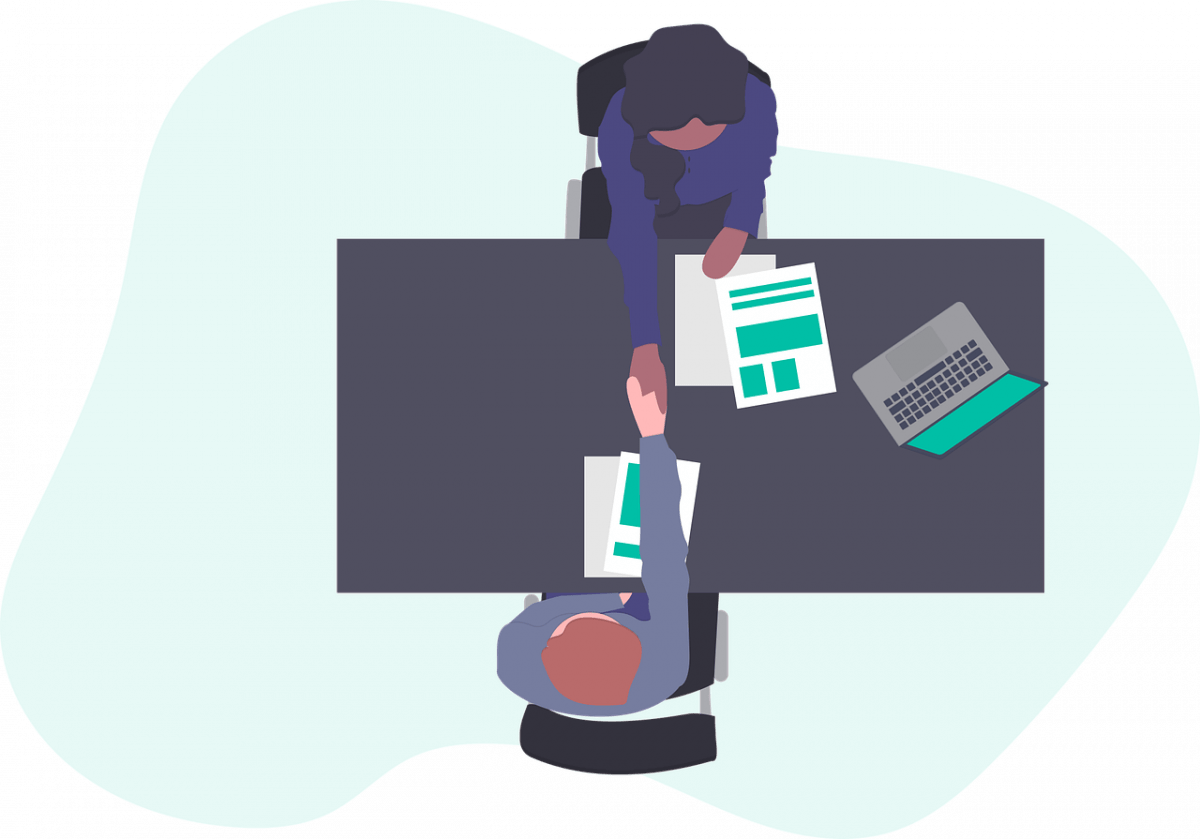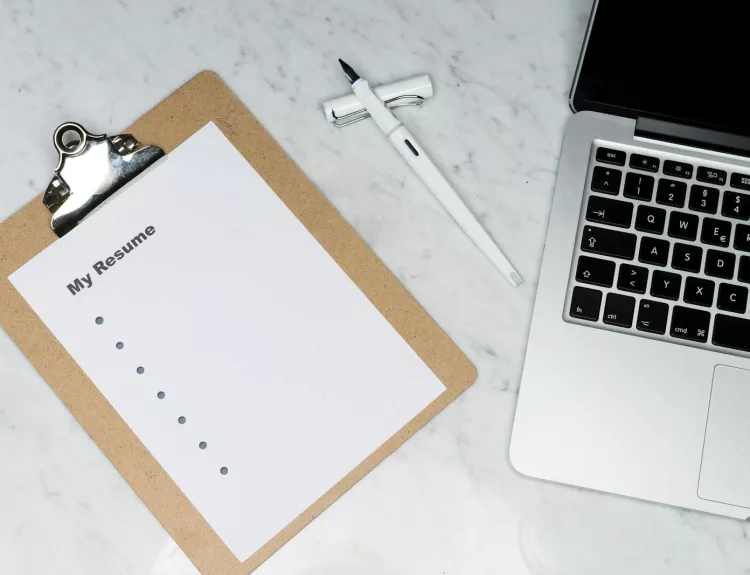Essentially, an interview is just a conversation.
It’s an opportunity for an employer to find out more about you and your skills, but it’s also a crucial moment for you to get a better feeling for your prospective employer. It’s a two way thing, and it’s important not to lose sight of this. As you prepare, it’s worth taking time to consider the top questions to ask in a remote interview. You can then prepare to make the best impression possible while also enhancing your knowledge of the company and position.
A good interview will always feel like a discussion and a two-way conversation. Listen to the interviewer, and pay attention to any key information they’re sharing. Always try to ask questions throughout the call, and make sure to adapt them. You don’t want to be asking something when the answer has already been touched upon earlier in the conversation.
1. What are you looking for me to achieve during my first six months in this role?
This is something really important to know and one of the top questions to ask in a remote interview. Role clarity is essential. This question will allow you to understand what would be expected from you in the role and your key responsibilities. If there are further steps left in the process, this can also be a great way to discover important information. This can help you to focus your responses during any remaining stages of the process.
Remember to always stay engaged. This can be an important opportunity for you to interact with the interviewer. Don’t miss the chance to re-emphasise any relevant skills and achievements.
2. I understand this is a remote position. I’d love to know more about how you connect as a team, and how you manage your work in a remote context?
Getting a feel for the team dynamics, work style and environment should be a top priority during any interview. This is one of the top questions to ask in a remote interview because it will allow you understand more about the team. It’ll also give you an insight into how they structure their work and communicate. It should also allow you get a better feel for the team culture. For example, how much importance is placed on encouraging strong connections between team members?
This can also be a good opportunity to get more information about how your day would be structured if you were to land the role. For example, you might find out that the team works asynchronously (in other words, they work closely together on projects, but not necessarily during the same hours) or that there are fixed hours you’d be expected to be online during.
3. What opportunities are there for the team to meet in person? Are there opportunities to travel and meet-up with different colleagues?
Ideally, you can slightly reframe this question. Take a look on the company’s career page. Usually, if they’re a remote or hybrid company and have regular meet-ups, these will be publicised. Alternatively, you can look at their company LinkedIn page or even their company blog (if they have one). If you then see they’ve had a meet-up in the last year or so, you can reference this when you ask the question. For example, you could ask something like:
“I was checking out [company name]’s LinkedIn page, and I saw you recently had a meet-up in Valencia! It looked like a really exciting event. Are there regular opportunities for the team to meet in person?”
This instantly shows you’ve done your research. It’ll also demonstrate your interest in trying to find out more about life at the company. It successfully demonstrates that you are enthusiastic to participate in company events, and to build positive relationships with the wider team.
4. How would you expect this role to evolve in the future and what opportunities are there for professional development?
Professional development is important in any role. After all, you want to be able to consistently improve your skillset and be well positioned to grow your career. Not only will this question allow you to find out more about potential learning and development opportunities, but it’ll also demonstrate that you’re thinking ahead and committed to building a long-term career at the company.
Recruiting is an expensive and time consuming business. No company wants to see their new hire leaving the role within just a few months. This means they’ll be expecting you to demonstrate and evidence your commitment to the role you’re applying for, as well as signal your intention to make a longer-term contribution.
5. I’d love to know more about your time at the company. How has your role developed, and how would you describe your experience so far?
It’s really important to show an interest in your interviewer and to try and build rapport. This is a top question to ask in an interview because it gives your interviewer the space to be able to talk more about their personal experience. This will give you an insight into their time at the company, how their role might have changed, and the key projects they’ve worked on. It also shows you’re interested in taking the time to understand more about them and their journey.
It’s worth pointing out, however, that you should take any answer with a small pinch of salt. The interviewer is likely to focus on highlighting the positive aspects of the company and their experience, rather than offering a more candid account. This said, it may give you a glimpse into how the company works internally. This can give you further insight into what you should expect if you were to join.
6. What are the company’s growth ambitions over the next twelve months, and how would you expect these to influence my role and the wider team?
As you make your next career move, it’s important to find out more about the company you’re interviewing with. Part of this should be done prior to your interview. For example, it’s a good idea to research any news related to the company. This can help you to understand who their key investors are, what products they offer, and any other details you should be aware of. For example, if you see the company has recently been acquired, or has merged with another another organisation, you should be weary of whether or not this indicates a potential restructuring in the future.
You can use the knowledge you acquire before your interview to provide background to your question and demonstrate your preparation for the call. For example, you might mention that while preparing for the interview you saw the company had recently launched a new product or feature. You can then ask how this is linked to their product roadmap and their growth ambitions. Listen carefully to the answer you receive. It may give you a glimpse into how the company is planning to develop, and how this might impact you if you join the team.
7. I’d love to know more about how onboarding works at the company. How do you help people to feel integrated and a part of the team in a remote context?
Not only does this question allow you to get a feel for how your first weeks and months would be at the company, it’s also an opportunity to find out more about the company culture. Essentially, you’re asking the interviewer to tell you more about how they structure onboarding, and how they ensure new people are introduced to the culture.
Having good onboarding systems in place is crucial. A company that priorities a healthy internal culture will place a strong focus on creating an an excellent onboarding process. If your interviewer is able to share detailed information, it’s a good sign. This is because it indicates strong levels of organisation, and a collaborative culture.
8. I’ve really enjoyed speaking with you and learning more about [company]. I’d love to know if you have any feedback about our interview today?
This question can sound really daunting. And I get it. But it works perfectly for two reasons. Firstly, it shows you’re receptive to feedback. This is a key attribute companies look for. Secondly, it’s the optimum time for you to get genuine, actionable feedback. In my experience, it is extremely rare for candidates to take the time to ask for feedback during their interview. That’s why it always stands out so positively when they do and is one of the top questions to ask in a remote interview.
By asking now, you’re proactively inviting the interviewer to give you actionable feedback. It also gives them the opportunity to share any concerns they might have. This gives you the opportunity to respond directly, and a chance to correct any misunderstandings or doubts. It’ll also highlight the two-way nature of your interview, as well as provide you with more insight into how you performed.
What are your top questions to ask in a remote interview? I’d love to hear your thoughts! Feel free to comment below.






